Lynching Beyond Dixie
Lynching Beyond Dixie
American Mob Violence Outside the South
Edited by
MICHAEL J. PFEIFER
UNIVERSITY OF ILLINOIS PRESS
Urbana, Chicago, and Springfield
2013 by the Board of Trustees of the University of Illinois
All rights reserved
Manufactured in the United States of America
1 2 3 4 5 c p 5 4 3 2 1

This book is printed on acid-free paper.
Library of Congress Cataloging-in-Publication Data
Lynching beyond Dixie: American mob violence
outside the South / edited by Michael J. Pfeifer.
p. cm.
Includes bibliographical references and index.
ISBN 978-0-252-03746-7 (cloth: alk. paper)
ISBN 978-0-252-07895-8 (pbk.: alk. paper)
ISBN 978-0-252-09465-1 (e-book)
1. LynchingUnited StatesHistory.
2. Culture conflictUnited StatesHistory.
3. ViolenceUnited StatesHistory.
4. United StatesRace relationsHistory.
I. Pfeifer, Michael J. (Michael James), 1968
HV6457.L947 2013
364.134dc23 2012028687
Contents
Michael J. Pfeifer
Helen McLure
Christopher Waldrep
Brent M. S. Campney
William D. Carrigan and Clive Webb
Kimberley Mangun and Larry R. Gerlach
Sundiata Keita Cha-Jua
Jack S. Blocker Jr.
Michael J. Pfeifer
Dena Lynn Winslow
Dennis B. Downey
Acknowledgments
Numerous people helped to make this book possible. Laurie Matheson once again was a model editor, offering crucial encouragement and support to the project; Dawn Durante provided splendid editorial assistance in the latter stages; Nancy Albright was a superlative copy editor; and Jennifer Clark ably oversaw the final stages of the books production. Daniel Golebiewski was an enthusiastic and capable research assistant. Erin Greb was a skillful and efficient cartographer. Others supported the research, writing, and editing in a variety of ways, including David Enos, Cia Lakin, Ginger and Matti Vehaskari, George Dansker, Jack Belsom, Carl Hallberg, Richard Judd, Ed Echtle, Ken House, and several anonymous readers. A veritable army of librarians and archivists facilitated the research, including those at John Jay College of Criminal Justices Lloyd Sealy Library, the Library of Michigan, the Wisconsin Historical Society, the State Historical Society of Iowa, the State Historical Society of North Dakota, and the Indiana State Archives. Several of the essays appeared in earlier form in scholarly journals and we are grateful to the editors of those journals for granting permission to reprint. Brent Campneys essay first appeared as Light is bursting upon the world!: White Supremacy and Racist Violence against Blacks in Reconstruction Kansas, Western Historical Quarterly 41 (Summer 2010): 171194. Copyright by the Western History Association. Portions of Sundiata Keita Cha-Juas essay appeared in an earlier form in Journal of Urban History 26.5 (July 2000). Jack Blockers essay was originally published in Ohio Valley History 6:1 (January 2006). Ohio Valley History is a collaboration of The Filson Historical Society, Cincinnati Museum Center, and the University of Cincinnati. An earlier version of Dena Lynn Winslows essay appeared in Maine History 40:2 (June 2001).
Lynching Beyond DixieIntroduction
MICHAEL J. PFEIFER
In the last years of the nineteenth century and first years of the twentieth century, it sometimes seemed that lynchers had seized control of American life. In September 1897 the New York Times lamented, as it often did in these years with abundant examples drawn from its news columns, the American propensity to lynch. Rejecting the views of a letter writer from Georgia who thought the main objection to mob violence was the possibility that the innocent might die along with the guilty, the Times countered that the real danger of lynching was that lynchers take the law into their own hands, which degraded individuals into lawbreakers and communities into uncivilized barbarism. The Times pointedly noted that this tendency did not respect regional boundaries. And this spirit is not confined to any section of the country. Not long ago we had a scandalous case of lynching for the usual crime in Ohio. Now we have an equally scandalous case of lynching in Indiana for the crime of robbery. A mob of farmers took from jail five men accused or suspected of this crime and put them to death. The Times scornfully observed that the Indiana lynchers had through their actions made new law by converting robbery into a capital offense and had taken the lives of several innocent men who would not have been found guilty in a court of law. The Times applauded the Indiana governors stated determination to prosecute and punish the Hoosier mobs recourse to lawlessness.
While observers in the late nineteenth and early twentieth centuries often construed lynching as a national problem with sectional dimensions, for a variety of reasons their sense of mob violence as a cross-regional phenomenon did not take lasting hold in academic or popular discourse. With the goal of contributing to a more comprehensive history of American lynching, this collection of essays takes a different approach by shifting the focus to the history of lynching beyond the South, while still keeping Dixie in mind. The intention here is to illuminate the similarities and differences between lynching in the West, the Midwest, and the Mid-Atlantic, and that which occurred in the South.
I have argued at length elsewhere that the origins of American lynching can best be understood as a national, indeed a transnational, process of cultural and legal formation. Diverging significantly from England and western Europe, the United States transition to a capitalist economy was not accompanied by the emergence of a strong, centralized national state that claimed and enforced an exclusive monopoly over violence and the administration of criminal justice to secure the rule of law. Rather, American criminal justice developed along a distinctive path that emphasized local authority and opinion, self-help and ad hoc law enforcement practices, and the toleration of extralegal violence. Lynching was an important aspect of this distinctive American trajectory from the late eighteenth through the early twentieth centuries, registering many Americans rejection of due process and the exclusive claims of state authority in criminal law. The formation of American criminal justice was a highly contested process, as lawyers, judges, and middle-class reformers fought for due process and the rule of law against rural elites and working-class people who sought to retain rough justice, that is, criminal justice grounded in local prerogatives of race, ethnicity, class, honor, gender, and crime control. Because of factors of demography, economics, and historical development that included slavery, westward migration, urbanization, and industrialization, the due process forces were at their strongest in the Northeast but weakest in the South, with the West and Midwest lying in between.


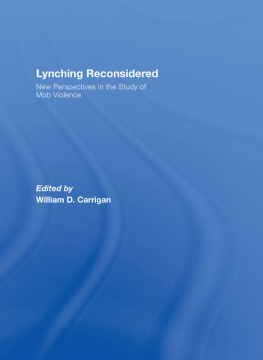
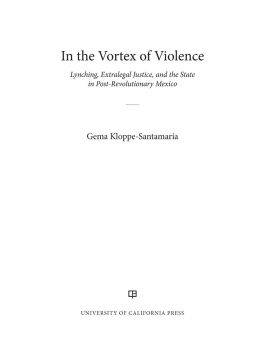

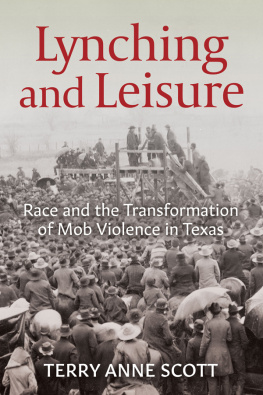
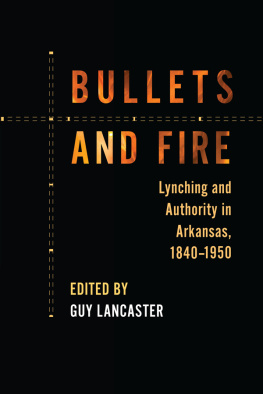
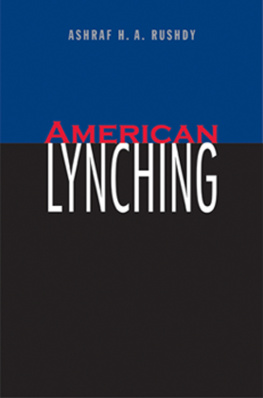
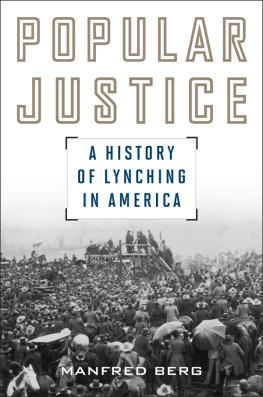

 This book is printed on acid-free paper.
This book is printed on acid-free paper.